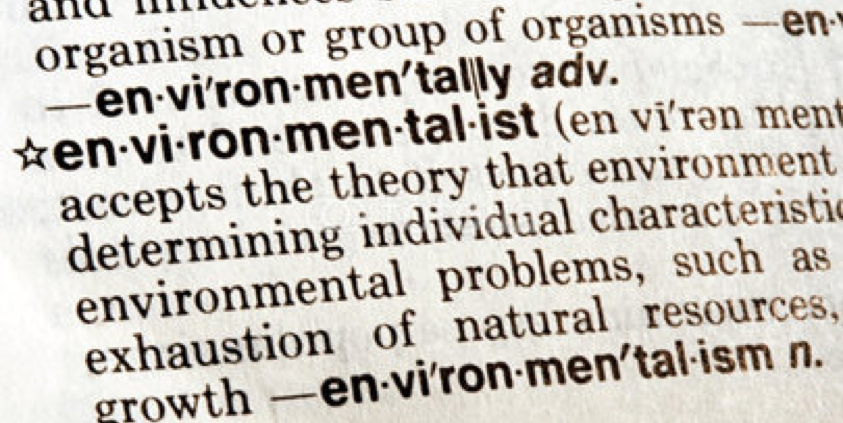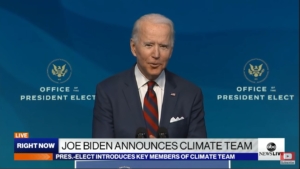Big Data vs. Big Personalities: Environmentalists Failing the Grade
Here’s What You Need to Know
This past week, Gallup released a poll that found 42% of Americans would consider themselves to be environmentalists, whereas the same poll in 1991 garnered 78% of Americans polled.
In a new Medium post, Delve Executive Vice President Matt Moon explains the shift:
- Party Gap: Today, only 27% of Republicans consider themselves environmentalists versus 56% of Democrats. In 1991, Americans of both parties shared the same high percentage of 78%.
- What’s Changed? Twenty-five years ago, the deterioration of the ozone layer and cross-regional air pollution leading to acid rain were problems Americans could see with their own eyes. Today, climate change has very few short term tangible features and rising levels of economic uncertainty and discontent limit Americans’ concern for non-economic policy issues. But, these factors only provide a limited explanation.
- Have Environmentalists Failed The Environment? The environmental movement has become ideological rather than rational, leading to environmentalism being seen as just another special interest. Many major environmental groups are now partisan political operations as opposed to results-oriented advocates. They seek to attack opponents instead of search for solutions to the problems facing our environment today.
- Room for Reform: There is space for bipartisanship on today’s environmental issues, as seen in the recent bipartisan work on energy reform legislation backing clean energy sources like nuclear and hydropower, and the recent creation of the bipartisan House Climate Solutions Caucus seeking solutions that a broad spectrum of Americans can support to confront global warming.
Gallup’s figures leave a grim prognosis for contemporary environmentalism, but more disturbing still is the impact that prognosis will have on honest attempts to address environmental challenges. The question at hand is whether contemporary environmentalism once again can be inclusive and solutions-oriented.
Subscribe to Receive Insights
"*" indicates required fields
News You Can Use
WORDS MATTER
Speaking in London last week, President Obama urged British voters to remain in the European Union, but he may have done more harm than good. During the press conference, Obama used the British English word “queue” in place of the American English “line.” The seemingly minor choice of phrase raised eyebrows. The Washington Post reports: “Some Brits quickly grew suspicious – was Obama pandering to his audience with this Britishism? Or was this a secret sign that someone British had been helping him craft his speech?” Whatever the intentions of Obama’s remarks, they may have missed their intended mark as the pro-Brexit group, Vote Leave,posted a video pulling selected remarks in which the President pointed out the irrelevance of Brexit on the Anglo-American relationship.
EVERYONE’S A LITTLE BIT IMPLICITLY BIASED
At a roundtable discussion on gun violence, Hillary Clinton seemed to catch inspiration from the parody Broadway show Avenue Q’s musical number, “Everyone’s a Little Bit Racist.” While discussing the issue of race, Clinton said “We all have implicit biases,” and that these biases have been part of our “DNA going back probably millennia.” Clinton called on Americans to be more honest and open about their racial biases even as her campaign faces difficult questions surrounding their candidate’s support for 1994 criminal justice reforms that have become controversial in some circles.
SILICON VALLEY’S JUDGMENT DAY
Last week, “Benchmark VC Bill Gurley posted a 5,700-word piece sounding the alarmabout the state of over-funded Silicon Valley companies and the investors who over-funded them.” Peter Kafka of Re/Code explains: “This is the most important part of Gurley’s essay: He sketches out a scenario in which companies that have gotten used to easy money but have yet to build a business that makes money, find that they need to raise more money — and that the easy money is gone.” It remains to be seen if or when judgment day will arrive for Silicon Valley’s overfunded startups and their investors.
BUBBLING DEBATE
The Soda Wars have come to the Democratic Presidential campaign. While campaigning in Philadelphia, Clinton became the first presidential candidate to explicitly endorse a tax on sugary drinks, claiming it both increases government revenue and promotes community health. Sanders, on the other hand, criticized the regressive nature of that tax, arguing it disproportionately hurts low-income and middle class Americans. For those who suggest Bernie never met a tax increase he didn’t like, his supporters now have a retort.
THE LEANING TOWER OF EU DEBT
While most people think of Greek debts, Middle Eastern refugees, and the potential for Brexit as the biggest dangers facing the European economy, the American Enterprise Institute’s Desmond Lachman argues the real danger may be the Italian economy. Italy, the Eurozone’s third largest economy with over $2 trillion in public debt, has seen banking shares decline by 40% so far this year. “At a time that Europe faces the real risk of a Brexit or a Grexit,” Lachman notes, “The last thing that it needs is financial market turbulence in Italy.”
21st CENTURY LOBBYING
Alaska Sen. Lisa Murkowski recently used hyper-targeted Facebook advertising to lobby employees at the Department of the Interior on approval for construction of an 11-mile road connecting two remote Alaskan towns. The advertisement used Facebook’s geotargeting technology and garnered the video over 3,100 views during the one-day ad blitz. While the ad was also seen by Facebook users in a few surrounding buildings, the tactic could provide a radical new way for lobbyists and advocacy groups to force their issues to be seen by the decision makers they seek to influence.
MONEYBALL? NEVER READ IT
After seeing the power of “big data” put to use in the 2008 and 2012 Obama campaigns, traditional candidates like Hillary Clinton and Ted Cruz sought to follow suit, engaging in a political arms race to build the best statistically-driven campaigns of the 2016 cycle. Meanwhile, outsider candidates like Bernie Sanders and Donald Trump have decimated the conventional wisdom of late by running “broader, more emotional appeals to voters rather than trying to slice the electorate into ever-narrowing segments.” The question is, can big data ultimately trump big personalities? That remains to be seen.
Mark Your Calendars
Tuesday, May 3: Indiana Primary
Tuesday, May 10: Nebraska Republican Primary & West Virginia Primaries
Subscribe here to get TL;DR in you inbox each week.

